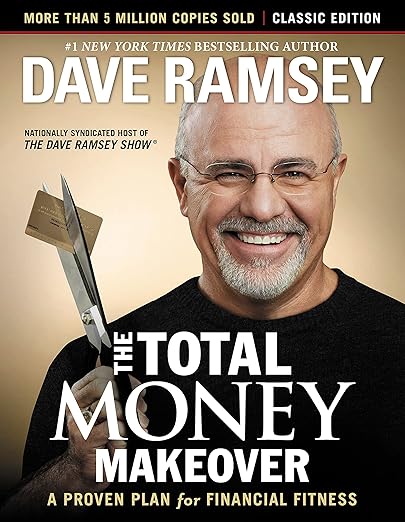A Story of Hidden Struggles and Recovery
For many people, buying a scratch-off ticket feels like harmless fun—a quick thrill, a small distraction at the store checkout, or a moment of imagined luck. But beneath that seemingly innocent habit lies a quiet danger that few recognize until it’s too late. My journey with lottery ticket addiction began casually and evolved into something that consumed my finances, peace, and sense of control.
Note: Some links in this post are affiliate links. When you use them, we may receive a commission. This helps sustain the free recovery resources we provide. We only recommend tools and services that align with our mission of offering safe, trustworthy support for gambling recovery.
How It All Began
In a place where lottery booths and convenience stores line every corner, scratch-off tickets are part of everyday life. At first, I bought them occasionally—maybe after payday or when friends joked about testing our luck. The rush of a small win felt intoxicating, almost like a secret reward for all the hard work. I didn’t see it then, but those moments of excitement were the early signs of lottery ticket addiction.
Unlike casinos or online gambling, scratch-offs felt harmless. They were inexpensive, widely available, and free from judgment. No one thought twice when I added a ticket to my grocery purchase. Yet over time, I stopped seeing them as entertainment. They became my imagined escape route from stress and worry—a chance to turn everything around with one lucky number. That illusion was the beginning of a deeper problem: lottery ticket addiction disguised as everyday routine.
Featured Book Review
 The Total Money Makeover by Dave Ramsey
The Total Money Makeover by Dave Ramsey
A straightforward and motivating guide to rebuilding financial stability, Ramsey’s bestselling book outlines a step-by-step plan for eliminating debt, building savings, and gaining long-term control over your money. Its practical structure makes it especially helpful for anyone recovering from gambling-related financial damage and needing a clear, structured path to restore financial health.
Recovery takes guidance, and books can provide both comfort and practical strategies. Visit our Books for Healing collection to explore guides, memoirs, and workbooks that support lasting change.
The Escalation of a Hidden Compulsion
What started as an occasional ticket slowly became a daily ritual. Ten dollars here, twenty there—then hundreds of dollars each month. I convinced myself it wasn’t lottery ticket addiction but just a “habit.” I even joked with coworkers about my “lucky streaks,” hiding how anxious I felt when I didn’t have a ticket in hand.
That’s what makes lottery ticket addiction so deceptive. The behavior seamlessly integrates into daily life, making it easy to justify and even easier to conceal. There were no alarms when I handed over cash at the counter. No one questioned why I scratched the tickets in the car before even leaving the parking lot. My addiction lived in plain sight, unnoticed by everyone—including me—until the financial wreckage became impossible to ignore.
The Financial Toll
At first, the losses felt small. Five or ten dollars didn’t seem like much. But small losses multiplied over months and years. I spent thousands—money that could have paid bills, reduced debt, or built savings. When I finally faced the truth, I realized lottery ticket addiction had drained not only my finances but also my sense of stability.
I remember waking up anxious, already planning where to buy the next ticket. I knew the money would be wasted, yet the urge felt stronger than reason. Living with lottery ticket addiction meant cycling between hope and guilt: buying, scratching, losing, and promising to stop—only to repeat it. It was an exhausting loop of self-deception.
The Emotional Cost
The shame was worse than the financial loss. I began avoiding friends because I couldn’t explain why I was always broke. I hid tickets from my partner and threw away the losing ones before anyone could see them. Lottery ticket addiction made me feel dishonest, even when I wasn’t directly lying. It quietly eroded my self-respect until I barely recognized the person I had become.
I often told myself, “It’s just a ticket,” but deep down, I knew it wasn’t just about money. It was about control—about chasing a feeling that never lasted. The brief thrill of scratching became my coping mechanism for loneliness, anxiety, and financial pressure. And like many people struggling with lottery ticket addiction, I felt trapped between denial and despair.
Plan a Better Financial Future
If you’re ready to rebuild after gambling, PocketSmith gives you budgeting tools and forecasts to stay on track. A clear plan makes long-term recovery more sustainable.
My Turning Point
The breaking point came one cold morning when I realized I had spent more on scratch-offs in a single week than I could afford for groceries. Sitting in my car surrounded by a pile of losing tickets, I felt completely defeated. That was the day I finally admitted the truth: I was living with lottery ticket addiction.
Instead of buying one more ticket to “win it back,” I called a close friend and confessed what had been happening. Saying it out loud lifted a weight I didn’t know I was carrying. Soon after, I joined a local support group where others shared similar stories. Naming the problem was the first real step toward recovery. Acknowledging it as a lottery ticket addiction gave me a direction—and a reason—to fight back.
Steps Toward Recovery
Recovery didn’t happen overnight, but each small change mattered. Here are the steps that helped me break free from lottery ticket addiction:
- Self-awareness: I started tracking every dollar I spent, facing the reality of how much lottery ticket addiction had cost me over the years.
- Accountability: I asked a trusted family member to help manage my finances until I regained control and learned better habits.
- Replacement habits: During moments of temptation, I took walks, journaled, or practiced breathing techniques instead of buying tickets.
- Support networks: Sharing my experience with others helped me realize I wasn’t alone and that lottery ticket addiction affects people from all walks of life.
Life Beyond the Tickets
It’s been years since I last bought a scratch-off ticket. My finances are stable again, my relationships are stronger, and I’ve learned to find satisfaction in everyday progress rather than fleeting luck. The thrill of gambling has been replaced with the quiet reward of discipline and honesty.
Freedom didn’t come from winning a jackpot—it came from stepping away from the cycle of lottery ticket addiction. I no longer chase luck; instead, I focus on building a life rooted in peace and self-trust.
Final Reflection
Looking back, what frightens me most is how ordinary it all seemed at the start. A small ticket, a harmless game—until it wasn’t. Lottery ticket addiction may not look as dangerous as casino gambling, but it can be just as destructive. It creeps into daily routines, hiding behind convenience and culture until it quietly takes over.
If you recognize parts of your story here, know that you are not alone. Recovery is possible. Healing takes time, courage, and honesty—but it begins with one simple step: admitting that lottery ticket addiction is real. My story is just one of many, but it proves that freedom doesn’t come from luck—it comes from choosing to reclaim your life.
Looking for More Guidance?
If this story resonated with you, these related readings may offer deeper insight and practical help as you continue your recovery journey:
- Recognizing the Signs of Gambling and Depression Together
- Types of Gambling Problems and Their Warning Signs
Build a Strong Foundation for Recovery
Recovery isn’t just about quitting — it’s about building new habits and supports. Visit our Recovery Tools & Resources page to find tools, apps, and guides to help you rebuild life after gambling.





